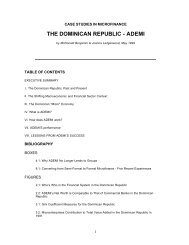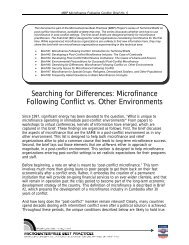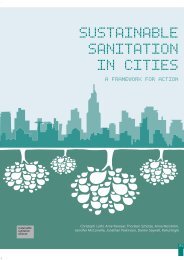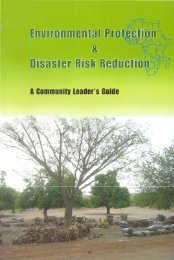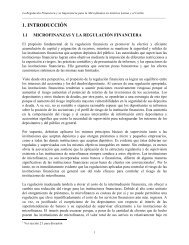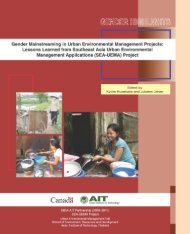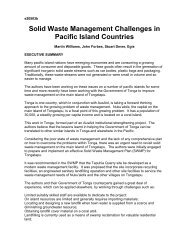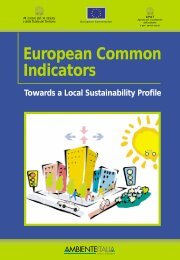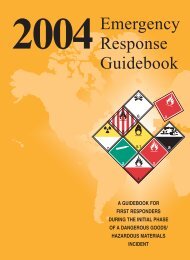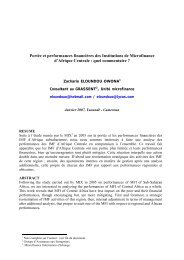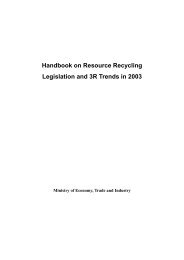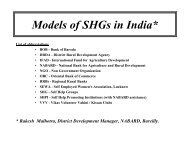The International Implementation Scheme (IIS) - Unesco
The International Implementation Scheme (IIS) - Unesco
The International Implementation Scheme (IIS) - Unesco
You also want an ePaper? Increase the reach of your titles
YUMPU automatically turns print PDFs into web optimized ePapers that Google loves.
DESD <strong>International</strong> <strong>Implementation</strong> <strong>Scheme</strong> (<strong>IIS</strong>)<br />
While these processes most clearly apply at national level, similar consultation mechanisms can<br />
be envisaged both at sub-national and at regional/international levels, where other stakeholders<br />
are involved.<br />
6.3 Partnership and networks<br />
Education for sustainable development is fundamentally cross-sectoral and engages a wide<br />
variety of institutions. <strong>The</strong> effectiveness of the Decade will depend on the strength and<br />
inclusiveness of the partnerships, networks and alliances which it is able to develop, among<br />
stakeholders at all levels. Indeed, something as broad-based and as long-term as an<br />
international decade can derive its energy and effectiveness only from partnerships and<br />
cooperative relationships – it is too great and too complex an undertaking for any one institution<br />
– national or international – to promote on its own. From the outset, therefore, the orientation of<br />
DESD partners must be outward-looking, seeking to make connections with initiatives,<br />
programmes, groupings and networks through whom ESD will be further promoted and<br />
implemented. Particular attention must be paid to connecting with both national governments<br />
because of their central coordinating role and resources and with civil society networks, because<br />
their grassroots connections can enable DESD messages to fan out and down to local levels.<br />
<strong>The</strong> Decade must identify and build on existing work and projects, building synergy and<br />
cooperation between them – partners may be found in unlikely places, as the range of<br />
perspectives on ESD implies (see section 3 above). <strong>The</strong> diversity of perspectives represented<br />
by partners means that there will be multiple entry points for participation in the Decade; where<br />
one starts from models of grassroots intervention (eg CSOs), another comes in from an<br />
environmental perspective (eg some government departments and NGOs), while yet another is<br />
concerned about sustainable economic growth (eg other government departments, international<br />
development banks). <strong>The</strong> added value of the Decade is to provide a place where these<br />
interests, far from competing, can collectively shape the common endeavour of ESD.<br />
A key aspect of partnerships and networking will be the regular and systematic exchange of<br />
experience and information with regard to ESD. This should an essential feature of the<br />
coordination of the Decade at each level, and particularly at regional and international levels.<br />
Knowing what others are doing around the world is a significant source of learning and<br />
innovation, and frequently an encouragement and motivational force to persevere in the long<br />
term.<br />
6.4 Capacity building and training<br />
In order to strengthen the implementation of ESD throughout the Decade it is essential to ensure<br />
that partners and stakeholders acquire and constantly improve their capacity and skills. It will be<br />
important to use (or design) capacity-building and training approaches which provide durable<br />
skills which can be practically applied. Decade partners may, in certain contexts and groupings,<br />
need to give attention first to developing approaches of this kind. <strong>The</strong> key areas of capacitybuilding<br />
and training include the following:<br />
• Communication and awareness-raising: these skills will provide the foundation for<br />
networking and establishing partnerships. Effective communication will serve to share<br />
agendas among stakeholders in a manner which identifies shared elements and gives<br />
potential partners the confidence to build active cooperation. Awareness-raising among<br />
stakeholders and with the wider public must, in today’s media-soaked world, be of the<br />
highest professional standards;<br />
• Planning, management and evaluation: the complexity of sustainable development and<br />
of ESD requires high levels of planning, management and evaluation skills to ensure<br />
clarity of purpose, focused partnerships, and assessment of effective progress;<br />
• Training and retraining of educators: within the formal education system and in nonformal<br />
settings, the level of knowledge and enthusiasm of the educator will be a key<br />
30<br />
2005



